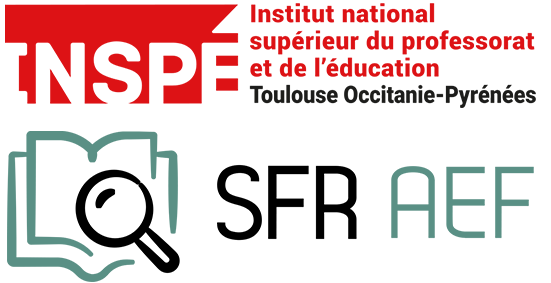-
Partager cette page
Research policy and missions
Activities


Established in 2013, the SFR's purpose is to promote exchanges and new partnerships, without replacing the studies carried out within the individual research units:
- regarding learning, teaching and training
- in relation to requests from the field
The entity federates researchers from 19 research units at the University of Toulouse.
The SFR hosts field researchers and acts as a link between the academic and clinical-research worlds, between researchers in different disciplines, academics and companies.
It organises meetings and seminars and encourages new collaborative projects, in order to enable convergence between research into the work of teachers and trainers, into the transmission and development of knowledge, the students who are learning, as well as the tools and environments:
- Specialists in academic subjects and in pedagogy
- Comparative social sciences/human sciences focused on regional differences in education and training
- Neurosciences/human sciences focused on learning and learning disorders
- IT/human sciences focused on Intelligent Tutoring Systems (ITSs)
The SFR is made up of 19 member units bringing together 250 research professors. In total, it has almost 350 members and collaborates with 7 partner organisations. The SFR is divided into 3 overarching themes covering 12 research topics. The main themes are:
Missions
SFR-AEF's mission is to contribute to:
- implementing scientific programmes established outside the framework of SFR which integrate the national priorities set out by the French Ministry of National Education and the ANR (French national Research Agency), as well as local priorities (universities, local education authorities, COMUE [the French University and School Community organisation] and region authorities).
- developing a specific SFR scientific programme that takes into account local, regional or national priorities as well as the potential and resources of SFR's members and partners. The aim is to build a joint research programme with a roadmap covering several years. Since 2015, this initiative has been developed through the Montpellier Languedoc Roussillon research network and will reach a conclusion in 2019 with the third "Journées des ESPE Occitanie" (Occitanie region University for Teachers and Education) in Narbonne and the establishment of a joint proposal in response to the French PIA3 (investment plan for the future) call for projects concerning research into education and teacher training.
